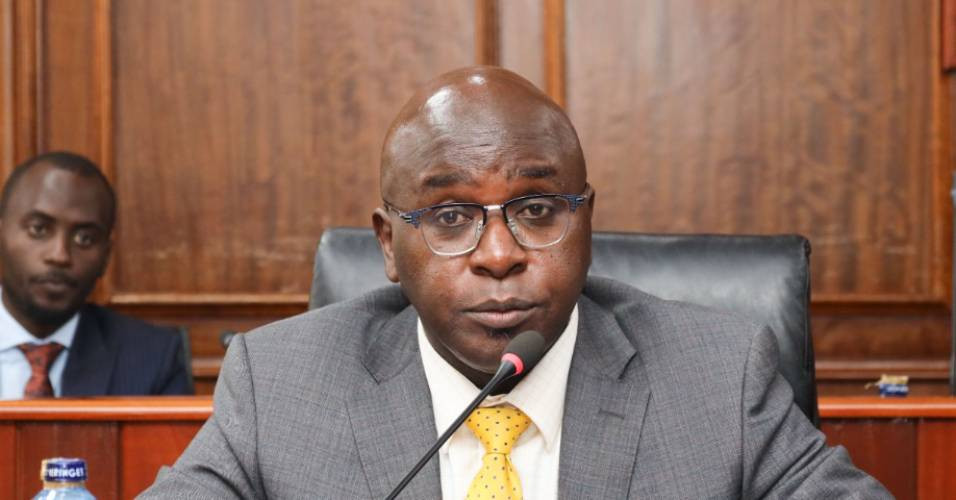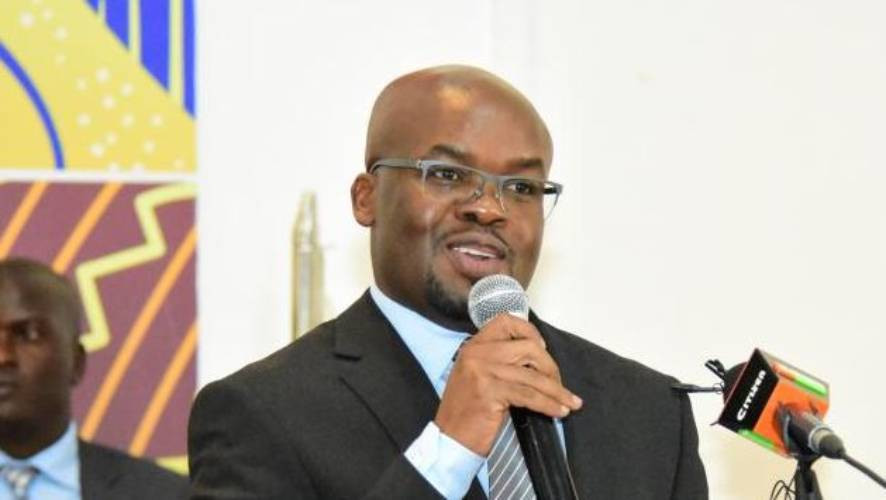Yes, when politicians choose to conspire to protect their interests, they become resolute in their actions and cross party lines with only one expected outcome – political capture. That is what informed the bipartisan position against a move by the Kenya Revenue Authority (KRA) to implement requirements of the new Constitution, which demands that anyone earning an income must meet their tax obligations.
Again, it is what informed last week’s unity of purpose, by the politicians, to disband the current top leadership of Kenya Anti-corruption Commission (KACC) in the transitioning to the new institution created by the Constitution, the Ethics and Anti Corruption Commission.
True, if the desire was to facilitate vetting of appointees to the leadership of the new commission, then, the only requirement would have been to allow transition subject to vetting but the remarks of the politicians during the debate tells of a strong desire by the politicians to get rid of the director, Patrick Lumumba and possibly his deputies.
The situation begs the question: is a more compliant team the purpose of the many invisible hands behind some of the provisions in the new legislations? Or is it a political conspiracy to capture the success to KACC? Is it possible that the main purpose has everything to do with integrity clearance for 2012 political contests? If Lumumba and team are targeted on the basis of performance, then, why did the legislators not include clear appraisal benchmarks, in new legislations, to test for effectiveness and demonstrated competence in fighting corruption? What, then, are the compelling issues?
Firstly, we have to acknowledge that as a people, the challenge of combating corruption cannot be left to the political leadership alone, but everyone must have a proactive role including holding those legislators bent on derailing the process to account. Especially, when time to face the electorate comes.
Yes, that time is next year and we must use the Hansard records to evidence the performance of each legislator with respect to the defence of public interests. Why? It is time for those who betray the public interest in pursuit of narrow political interests and self-preservation to be named and shamed as a matter of public attention.
We are at it again, for the third time, creating and recreating the anti-corruption institution and changing the staff as scapegoats.
Ironically, this is taking place when the country is facing increasing claims of corruption and more corruption – an endless circle. How can we end this quagmire that must be nipped, once and for all – yes nipped at its core. It is evident that as a country and a people, our fortitude on corruption is now becoming unbearable. It must not be a rhetorical action year – in year – out and worse still focusing all our actions on reforming the institution charged with fighting corruption with a circle of staff changes.
The current machinations writings are clear on the wall – for all to see – and it has nothing to do with any renewed fight against corruption by Parliament or the executive.
Thus, it has everything to do with removal of Lumumba and his colleagues at KACC to give way to new appointees in the name of protecting vested agenda.
Which one will be lucky this time to enjoy the high pay that remains an envy of many? Surely, if merit is the objective there are many Kenyans willing and ready to provide leadership in the body but given the dynamics involved, who would want to put themselves in positions that are increasingly becoming untenable for anyone, no matter the credentials.
Secondly, it cannot and must not become unfettered responsibility of the political class to determine how and who becomes the next leaders of Ethics and Anti-Corruption Commission as chief Executive and or commissioners. In away, the Committee of Experts on the constitution failed to acknowledge and ring-fence the anti-corruption body and or its successor against political meddling with appropriate safeguards to guarantee necessary independence in fighting corruption. Yes, they did protect many key institutions including the Judiciary but given the central role of the anti-corruption agency in assuring integrity across key organs of government, it needed a special attention to preserve the momentum of fighting corruption and inculcating a culture of integrity.
Thirdly, we still have a few legislators keen to protect public interests for whom we urge to stay alert and warn the people of any machination to hoodwink the public that current legislative process is aimed at reinvigorating efforts to build a corruption – free Kenya.
We must pay special attention to the recruitment, nomination and vetting of the new management including any horse-trading that could compromise the effectiveness of such a critical public agency. The choices are obvious – we need resolute persons beyond reproach to win the war against corruption and the risks are enormous, real and compelling in every respect. The ultimate question is why should the taxpayers assume responsibility of meeting costs of a mismanaged transition process estimated at hundreds of millions of shillings in the form of compensations. The new Attorney General should advise correctly on how to achieve a seamless transition with minimum disruptions and assurances that only those fit and proper should lead the new institution.
This is a matter compelling public interest and must be treated so!
Stay informed. Subscribe to our newsletter
—Comments to publicwatchdog @standardmedia.co.ke
 The Standard Group Plc is a
multi-media organization with investments in media platforms spanning newspaper
print operations, television, radio broadcasting, digital and online services. The
Standard Group is recognized as a leading multi-media house in Kenya with a key
influence in matters of national and international interest.
The Standard Group Plc is a
multi-media organization with investments in media platforms spanning newspaper
print operations, television, radio broadcasting, digital and online services. The
Standard Group is recognized as a leading multi-media house in Kenya with a key
influence in matters of national and international interest.
 The Standard Group Plc is a
multi-media organization with investments in media platforms spanning newspaper
print operations, television, radio broadcasting, digital and online services. The
Standard Group is recognized as a leading multi-media house in Kenya with a key
influence in matters of national and international interest.
The Standard Group Plc is a
multi-media organization with investments in media platforms spanning newspaper
print operations, television, radio broadcasting, digital and online services. The
Standard Group is recognized as a leading multi-media house in Kenya with a key
influence in matters of national and international interest.









